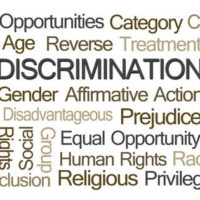Drastic Cuts to HUD’s Budget Proposed

Recently, the Trump Administration proposed significant budget cuts for the Department of Housing and Urban Development (HUD) to the tune of around six billion dollars. In response, many fair housing advocates and experts in urban policy have voiced concerns that the budget cuts would have devastating consequences for low-income families by stalling backlogged repairs of public housing units and reducing the availability of subsidized housing vouchers.
The Potential Consequences of a Reduced Budget
Urban policy experts argue that a budget cut of this size (approximately 14 percent) would result in the following issues:
- Reductions to public maintenance funds, which are usually used to repair boilers, replace broken doors, fix plumbing problems, and maintain heating;
- The elimination of community development grants that provide services, such as meal assistance, cleaning up abandoned properties, providing workforce training, and implementing child services programs;
- The curtailing of programs that help prevent homelessness;
- The elimination of the National Housing Trust Fund, the aim of which is to help state and local governments develop affordable rental housing;
- The reduction of the Community Development Block Grant program, which supports a variety of economic development projects, including the construction and repair of sewers, roads, and housing, and provides funding for public facilities improvements, disaster relief, and neighborhood rehabilitation;
- The elimination of revitalization grants that leverage private funding to help expand the availability of affordable housing;
- A reduction in homeownership investments, community development investments, and rental vouchers; and
- The reduction of HUD salaries by five percent.
According to the terms of the proposal, the preliminary budget will provide the same amount of funding to rental-assistance programs. However, a nonpartisan research organization estimates that the cuts would actually result in a loss of around 250,000 rental-assistance units across the country.
Although the majority of the proposed budget was made up of cuts, the proposal did include provisions that would provide funding to HUD’s mortgage agencies, while also requiring lenders who sell mortgages through the Federal Housing Administration to pay a fee. These funds would then theoretically be used to upgrade risk-management and technology systems. Finally, the budget maintains funding for the support and enforcement of the FHA. Opponents of the proposal argue that these concessions do not make up for the extreme cuts included in the proposal and posit that if put into effect, the current budget would have devastating effects on low-income communities across the nation.
Call Today to Schedule a Meeting With an Experienced FHA Attorney
The FHA prohibits landlords from refusing to rent to certain individuals or setting different terms for the rental of a unit, and otherwise protects renters from discrimination. The proposed budget cuts could impact these rights, so if you have been faced with discrimination while attempting to secure housing, please contact an experienced FHA attorney at Saady & Saxe, P.A. Attorneys At Law by calling 813-909-8855 or by sending us a brief online message.
Resources:
portal.hud.gov/hudportal/HUD?src=/budget
nytimes.com/2017/05/30/opinion/hud-budget-cuts-ben-carson.html
